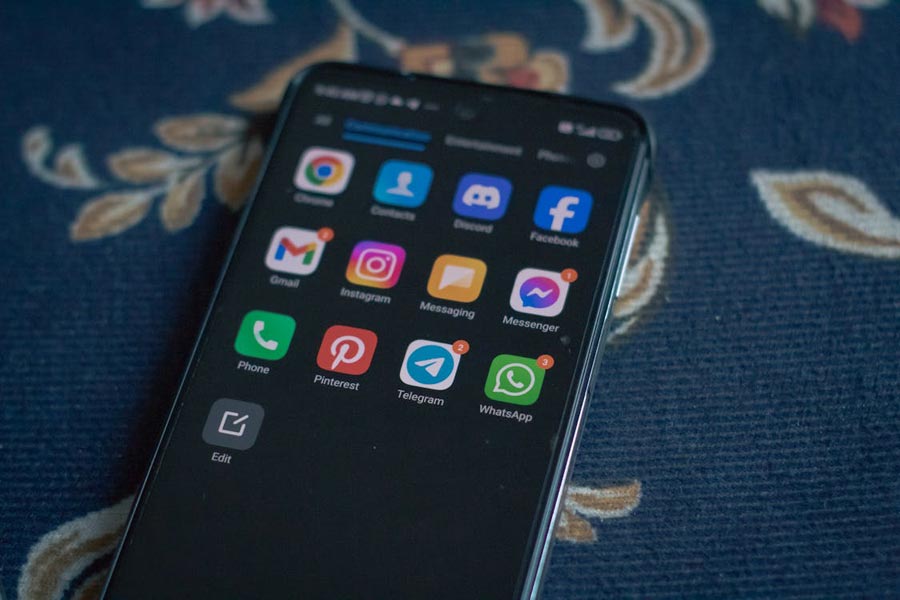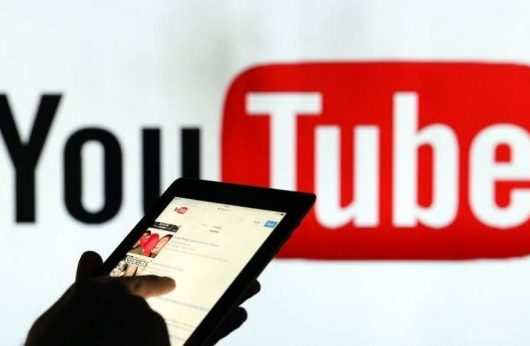Digital platforms like YouTube, TikTok, and Instagram are transforming how teens interact with the world. Social media is reshaping communication, but it’s also influencing behavior in unexpected ways.
These platforms provide spaces for creativity, yet their addictive nature is raising concerns about teen well-being. With constant exposure to new content, how do these platforms impact mental health? How do they affect social development and self-perception? Are teens becoming more isolated or connected?
In this article, we’ll explore the ways digital platforms are influencing teen behavior and discuss potential solutions to protect young users from harmful effects.
The Rise of Social Media and Its Impact on Teen Identity
Social media platforms like Instagram and TikTok contribute to teen identity formation.
UC Davis Health notes that scrolling through Instagram or TikTok is a normal part of daily life now. Globally, there were over 4.9 billion social media users in 2023. The average user spent about 145 minutes on these platforms each day.
Teens engage in constant sharing, self-presentation, and interaction online. This can lead to increased self-awareness but also to anxiety and pressure.
Teens often compare themselves to idealized versions of others they see online. This can harm their self-esteem and body image, as they seek validation. The pressure to meet specific beauty standards can be overpowering.
Teenagers often measure their self-esteem based on likes, comments, and follower counts. The need for real-life connections can diminish as teens seek virtual validation. These dynamics significantly influence how teens view themselves and interact with others.
The Influence of Algorithms on Teen Behavior
Platforms like YouTube and TikTok use algorithms designed to capture teen attention. These algorithms suggest content based on a teen’s viewing habits and preferences. The more a teen watches, the more tailored the recommendations become.
This creates a cycle that encourages longer viewing times, sometimes leading to addiction.
Verywell Mind states that many people say their constant urge to watch YouTube feels like an addiction. Behavioral addictions involve dependence on actions instead of substances, such as compulsive video watching.
Psychologists still debate whether all behavioral compulsions qualify as real addictions. In 2013, DSM-5 listed internet gaming disorder as a condition needing further study.
As teens engage with content, they are exposed to more extreme or sensational videos. These videos can alter their behavior and affect mental health over time.
The addictive nature of these platforms can reduce teens’ attention spans. Teens are also more likely to engage with content that fosters anxiety or unrealistic expectations. Effective content regulation is essential to protect teens from harmful exposure.
Online Communities and Their Effect on Social Development
Teens often seek connections in online communities with like-minded peers. These online spaces can provide support, especially for those feeling isolated. However, they can also reinforce unhealthy behaviors and negative group dynamics. Cyberbullying is a significant concern, especially on platforms with anonymous features.
The anonymity of the internet can lead to situations that might not happen in face-to-face interactions, such as:
- Reinforcing unhealthy behaviors within certain online subcultures
- Encouraging negative peer pressure or exclusion
- Making it easier for users to bully or harass others without consequence
- Reducing empathy due to the lack of personal accountability
As per the latest available data from WHO, cyberbullying among boys rose from 11 to 14% between 2018 and 2022. Girls also showed an increase, with cyberbullying rates climbing from 7 to 9%. Reports of being targeted online jumped from 12 to 15% for boys. For girls, it went up from 13 to 16% during the same period.
Teens may adopt harmful attitudes from these groups, leading to mental or physical harm. It’s vital to ensure that online communities support positive development and well-being. Parents should monitor teens’ online interactions to safeguard their emotional health.
The Role of Legal Action in Protecting Minors
As digital platforms shape teen behavior, legal action is necessary for protection.
In September 2024, AP News reported that Arkansas Attorney General Tim Griffin filed a lawsuit. He accused Google, YouTube, and Alphabet of targeting minors with harmful content.
The lawsuit, filed in Little Rock, claims YouTube exploits young users’ developing brains. The platforms encourage excessive engagement, harming mental health and development.
Parents concerned about their children’s digital experiences can approach a Little Rock personal injury lawyer for guidance. Although the lawsuit is based in Arkansas, its implications are national. Digital platforms influence teens worldwide, shaping behavior and mental health.
According to Keith Law Group, this case signals a growing need for legal accountability in tech. Legal action is necessary to protect minors from harmful content and addiction. Lawyers can help parents explore legal options related to platform accountability.
The case reflects a larger movement to regulate digital platforms for safety.
How Parents and Guardians Are Navigating the Digital World
Navigating the digital world can be challenging for both parents and teens. Parents should monitor screen time and set clear boundaries for their children. Having open discussions about online experiences helps ensure teens understand the risks.
Teens should be educated about digital literacy and how to identify harmful content. Encouraging responsible usage of digital platforms can reduce negative behavioral impacts. It is crucial to stay updated on the latest online trends and dangers.
The APA mentions that psychologists also agree that kids should learn digital literacy skills from an early age. This includes spotting misinformation, protecting privacy, and evaluating race-related content online. Experts suggest using teens’ natural skepticism to teach media awareness more effectively.
Parents should foster healthy communication about the digital world’s influence on their lives. Being aware of the signs of digital addiction can help address issues early. Ultimately, parents play a critical role in guiding teens through the digital age.
FAQs
How does social media influence teens’ decision-making skills?
Social media can condition teens to seek instant gratification, making them more impulsive. Viral trends and peer approval may influence their choices without adequate reflection. This can hinder the development of patience, critical thinking, and long-term planning skills necessary for academic and personal success.
How do algorithms shape teens’ perceptions of reality?
Algorithms often show exaggerated or misleading representations of life by curating content to maximize engagement. Teens may begin to believe these portrayals reflect real norms or expectations. This can distort their understanding of relationships, success, and self-worth, contributing to confusion and internal conflict.
How do online communities affect teens’ exposure to risky behaviors?
Some online groups normalize dangerous behaviors such as self-harm, substance abuse, or extreme dieting. Vulnerable teens may adopt these habits to feel accepted. Since these actions often seem validated by peer communities, they can escalate quickly before parents or professionals notice warning signs.
Digital platforms are deeply woven into teen life, offering both connection and serious risks. They help teens express creativity, but they also shape identity and behavior in powerful ways. Algorithms and online peer interactions can influence mental health, often without teens realizing the impact.
Constant exposure to curated content can lead to addiction and anxiety over time. Parents and teachers must step in to teach digital awareness and build critical thinking skills. Legal efforts are also important for holding platforms accountable for harmful content. Striking a balance between benefits and drawbacks is key to supporting healthy teen development online.











